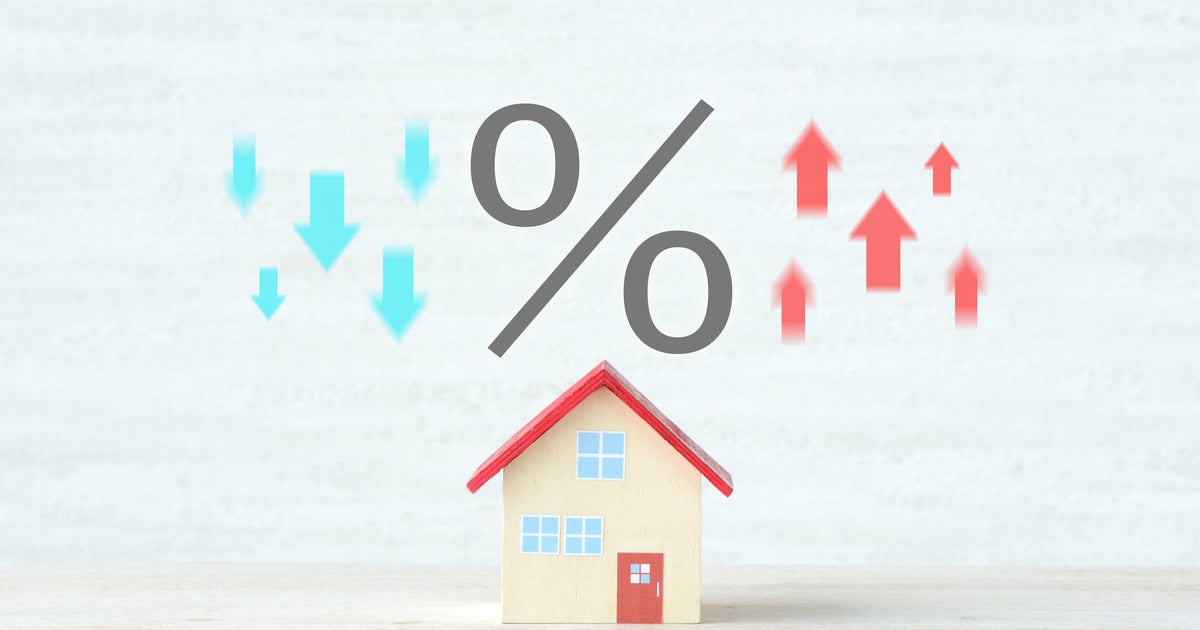4 mortgage interest rate scenarios that could occur in 2025
Mortgage rates have kept homebuyers on their toes with up-and-down movements since January 2024. After starting the year near 7%, rates briefly dipped to a two-year low of 6.15% in September. That lower mortgage rate gave buyers a glimmer of hope that homebuying would now be more affordable — but it was short-lived. Rates climbed back up shortly after and are now sitting at an average of 6.93%, leaving to-be homeowners wondering what to expect in 2025.
While the Federal Reserve has already cut rates twice in the last couple of months and has hinted at possible rate cuts next year, the path forward for mortgage interest rates is unclear. Multiple factors will shape where rates head, such as inflation trends, employment numbers and global events.
As a result, housing market experts see several possible scenarios unfolding in the coming year. Understanding these potential paths — and what drives them — can help you make informed decisions about whether to lock in now or wait.
Start comparing the mortgage rates you could qualify for here.
4 mortgage interest rate scenarios that could occur in 2025
"The most plausible scenario for 2025 is a gradual decline in mortgage rates, driven by the Federal Reserve's potential pivot to more accommodative monetary policies," says Chris Heller, president of Movoto.com.
Evan Luchaco, a home loan specialist at Churchill Mortgage, also expects moderate rate decreases throughout the year, barring major economic or geopolitical events.
However, Debbie Calixto, sales manager at loanDepot, cautions that "it's too early to predict where mortgage rates will be in [the future]." Calixto notes that new administration policies could impact inflation expectations.
With that in mind, below are four potential scenarios for 2025 mortgage rates — and what needs to happen for each to play out.
Scenario 1: Continued rate stability
In the most stable scenario, mortgage rates would hold steady at their current levels throughout 2025.
Heller explains this outcome would require a delicate balance of the following:
- Steady employment figures
- Inflation settling near the Fed's 2% target
- Consistent economic growth without major shocks
Luchaco echoes a similar sentiment.
"We need to see new job creation and unemployment [staying] in line with where they are currently," Luchacho says.
Under these conditions, the Federal Reserve would likely maintain its current monetary policy. This could keep mortgage rates relatively unchanged.
Find out how affordable a mortgage loan could be today.
Scenario 2: A gradual rate decline
To see a gradual rate decline, "inflation metrics would need to show sustained progress, with core inflation consistently below 3%," says Heller. He adds that stable energy prices and moderate wage growth would give the Fed confidence to reduce rates over time.
Another key factor to watch for is employment trends, according to Luchaco.
"For rates to decrease at a moderate pace, we need to see unemployment increase, new job creation decrease and inflation decrease," he points out.
Scenario 3: Rate volatility persists
Mortgage rates could also continue their up-and-down pattern.
"Rate volatility will persist if economic uncertainty remains high, fueled by unpredictable geopolitical events, fluctuating inflation or erratic consumer spending," says Heller.
This scenario could unfold if the Fed must respond quickly to conflicting signals such as a sharp economic slowdown.
Scenario 4: Major rate hike or drastic rate cut
Heller says another scenario is a significant rate hike if inflation accelerates due to unforeseen global supply chain disruptions or commodity price surges.
"Conversely, a severe recession could prompt drastic rate cuts if the Fed needs to stimulate a struggling economy," he adds.
Is now a good time to lock in a mortgage interest rate?
"Rather than [attempting] to time the market, focus on [your] financial preparedness," advises Heller.
He suggests exploring options such as rate buy-downs or adjustable-rate mortgages if conditions are uncertain.
Calixto highlights the best timing depends more on your circumstances than mortgage rates and home prices.
"[Prioritize] finding the right home for your family and ensuring [feasible] monthly payments [instead of] fixating on interest rates," she says. "Rates will always [fluctuate], but securing a home that fits your needs and budget [should be your main goal]." You can refinance your mortgage if rates drop later.
The bottom line
While mortgage rates might shift throughout 2025, waiting and depending on a rate drop could mean missing out on a great home. Luchaco recommends getting pre-approved early if you're serious about buying a home soon. This way, you know exactly what your budget looks like and what you can afford.
loanDepot's Calixto suggests reviewing local market trends and consulting real estate agents and mortgage professionals to make an informed decision. By understanding your budget and options now, you can put in an offer when you find a home that meets your needs — regardless of where rates stand.




